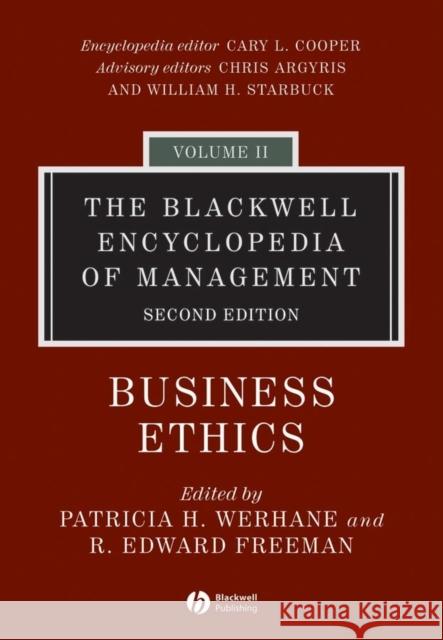The Blackwell Encyclopedia of Management : Business Ethics » książka
topmenu
The Blackwell Encyclopedia of Management : Business Ethics
ISBN-13: 9781405100137 / Angielski / Twarda / 2006 / 600 str.
- A thoroughly updated new edition, now reflecting the current business climate of featured countries
- Features entries from over 220 philosophers, theologians, social scientists, management professors, and practitioners
- Maintains the standard terms and concepts in business ethics
- Interweaves the lessons learned from recent instances of financial malfeasance by companies such as Enron, WorldCom, Global Crossing, and Tyco
- Includes many new subjects such as corporate citizenship, the Sarbanes-Oxley Act, and socially responsible investing
- Contains entries pertaining to the increasingly sophisticated technology and science of today's world: E-Business, Internet and Business Ethics, nanotechnology, and biodiversity











